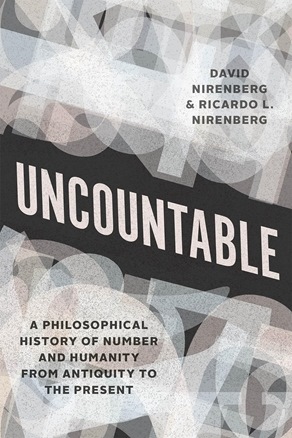Description
Our knowledge of mathematics has structured much of what we think we know about ourselves as individuals and communities, shaping our psychologies, sociologies, and economies. In pursuit of a more predictable and more controllable cosmos, we have extended mathematical insights and methods to more and more aspects of the world. Today those powers are greater than ever, as computation is applied to virtually every aspect of human activity. Yet, in the process, are we losing sight of the human? When we apply mathematics so broadly, what do we gain and what do we lose, and at what risk to humanity? These are the questions that David and Ricardo L. Nirenberg ask in Uncountable, a provocative account of how numerical relations became the cornerstone of human claims to knowledge, truth, and certainty. There is a limit to these number-based claims, they argue, which they set out to explore. The Nirenbergs, father and son, bring together their backgrounds in math, history, literature, religion, and philosophy, interweaving scientific experiments with readings of poems, setting crises in mathematics alongside world wars, and putting medieval Muslim and Buddhist philosophers in conversation with Einstein, Schrödinger, and other giants of modern physics. The result is a powerful lesson in what counts as knowledge and its deepest implications for how we live our lives.
About the Author
David Nirenberg is dean of the Divinity School at the University of Chicago, where he also teaches in the Committee of Social Thought and the Department of History. His books include Anti-Judaism: The Western Tradition, Neighboring Faiths: Islam, Christianity, and Judaism in the Middle Ages and Today; and Communities of Violence: Persecution of Minorities in the Middle Ages. After doing research in mathematics for a dozen years, David s father, Ricardo L. Nirenberg turned to his other calling: philosophy and literature. He has published numerous essays, short fiction, and the novels Cry Uncle and Wave Mechanics: a Love Story. He is the founder and editor of the literary journal offcourse.org.
